Natural Antioxidants from Mushrooms
In our daily battle against oxidative stress, mushrooms emerge as unsung heroes, packed with natural antioxidants that offer remarkable protection for our cells. While many of us reach for berries or green tea when thinking about antioxidant-rich foods, the fungal kingdom quietly harbors some of nature's most potent free-radical fighters.
The unique antioxidant profile of mushrooms sets them apart in the wellness world. Ergothioneine, a rare amino acid abundant in mushrooms, provides exceptional cellular protection that's hard to find elsewhere in our diet. This "longevity vitamin," as some researchers call it, concentrates in areas of high oxidative stress in our bodies, offering targeted protection exactly where we need it most.
Beyond ergothioneine, mushrooms deliver a powerful antioxidant punch through their polyphenol content. These plant compounds actively neutralize free radicals before they can damage our cells. The complex beta-glucans in mushrooms pull double duty – not only supporting immune function but also bolstering our body's antioxidant defenses through multiple pathways.
Many mushroom varieties are also excellent sources of glutathione – often called the "master antioxidant" – with porcini mushrooms showing particularly impressive levels. Additionally, mushrooms can be rich in selenium, an essential mineral that works as a cofactor for antioxidant enzymes, enhancing their effectiveness throughout the body.
Our modern lifestyle exposes us to an unprecedented barrage of oxidative stressors – from environmental toxins and processed foods to chronic stress and lack of sleep. While our bodies produce some antioxidants naturally, this internal defense system often struggles to keep pace, especially as we age or face health challenges.
What makes mushroom antioxidants particularly valuable is their remarkable stability. Many remain potent even after cooking, making them practical additions to your daily diet. Research from Penn State University found that mushrooms contain significantly higher levels of ergothioneine and glutathione compared to other foods previously believed to be the best dietary sources.
The antioxidant potential of mushrooms isn't limited to exotic varieties – though reishi, lion's mane, and chaga are certainly standouts. Even common white button mushrooms offer meaningful antioxidant benefits. The fungal kingdom provides a diverse spectrum of protective compounds that work through different mechanisms to shield our cells from oxidative damage.
As co-founder of Eversio Wellness, my journey with functional mushrooms began while seeking natural solutions for my own health challenges. Through years of research and personal experience, I've witnessed how the natural antioxidants from mushrooms can support overall wellness and vitality when properly extracted and consumed.
Why Antioxidants Matter for Health
Ever wonder why health experts keep talking about antioxidants? It's because they're your body's frontline defenders in a battle that's happening inside you right now—even as you read this.
Your cells are constantly engaged in a delicate balancing act between producing reactive oxygen species (ROS) and neutralizing them. While these molecules play important roles in immune function and cell signaling, too many of them lead to oxidative stress, which damages your cells, proteins, and DNA over time.
Research shows that over 90% of reactive oxygen species in our bodies come from our mitochondria—those tiny powerhouses generating energy for everything we do. This natural process is simply part of being alive and having an active metabolism. The challenge arises when environmental toxins, poor diet, stress, and aging increase ROS production beyond what our natural defenses can handle.
As Dr. Robert Beelman, a researcher at Penn State who studies mushroom antioxidants, explains: "Mushrooms are the richest source of these two antioxidants [ergothioneine and glutathione] and some are really rich in these." His research suggests these compounds may help protect against conditions associated with oxidative stress.
Oxidative Stress 101
Think of oxidative stress as rust forming inside your body. It occurs when there's an imbalance between free radical production and your body's ability to neutralize their harmful effects. Free radicals are unstable molecules with unpaired electrons that "steal" electrons from other molecules, creating a damaging chain reaction.
This oxidative damage has been linked to:
- Accelerated aging processes
- Chronic inflammation
- DNA damage
- Cellular dysfunction
Over time, these processes contribute to many health challenges we face as we age. Interestingly, population studies suggest that countries with higher mushroom consumption, such as France and Italy, have lower rates of neurodegenerative diseases compared to the United States. While correlation doesn't prove causation, researchers are investigating whether the higher intake of natural antioxidants from mushrooms might play a protective role.
Diet vs. Endogenous Defenses
Your body produces several internal (endogenous) antioxidant enzymes, including superoxide dismutase (SOD), catalase, and glutathione peroxidase. These powerful systems work together to neutralize free radicals before they can cause damage.
However, these systems can become overwhelmed, especially as we age or when we're exposed to high levels of environmental toxins, radiation, or stress. This is where dietary antioxidants become crucial allies in maintaining health.
While most of us know about vitamins C and E, carotenoids, and polyphenols from fruits and vegetables, mushrooms offer unique antioxidants that complement these better-known compounds. What makes mushroom antioxidants particularly valuable is their dual approach:
First, they act as primary antioxidants—direct free radical scavengers that donate electrons to stabilize free radicals. Second, they function as secondary antioxidants—compounds that support our body's own antioxidant systems, helping to prevent free radical formation in the first place.
This two-pronged approach makes mushrooms especially effective additions to an antioxidant-rich diet. As we face increasing environmental challenges and longer lifespans, supporting our body's natural defenses with these powerful fungal allies becomes increasingly important for maintaining long-term health and vitality.
Natural Antioxidants from Mushrooms
When it comes to fighting free radicals and oxidative stress, mushrooms are true champions of the plant kingdom. Their unique array of antioxidant compounds works through multiple mechanisms to shield our cells from damage. What makes mushroom antioxidants particularly exciting is that some, like ergothioneine, are rarely found in other foods.
Let's explore these fascinating fungal defenders:
Ergothioneine is a standout star in the antioxidant world. This unique amino acid is primarily found in mushrooms, and since our bodies can't produce it, we must get it from our diet. What's remarkable about ergothioneine is its stability—it remains active even after cooking and naturally accumulates in tissues facing high oxidative stress, like your brain, eyes, liver, and kidneys.
Research from Penn State University revealed something surprising: mushrooms contain significantly more ergothioneine than wheat germ or chicken liver, which were previously considered the best dietary sources. Just a 3-ounce serving of white button mushrooms provides about 5 mg of ergothioneine, while specialty varieties like shiitake, maitake, and oyster mushrooms can deliver up to 13 mg in the same serving.
Glutathione, often called the "master antioxidant," is another mushroom superstar. While our bodies produce some glutathione naturally, mushrooms—especially porcini—are exceptionally rich in this powerful compound. Glutathione plays a crucial role in detoxification and helps regenerate other antioxidants like vitamins C and E, creating a cascade of protective effects.
Polyphenols in mushrooms include flavonoids, phenolic acids, and lignans that help neutralize free radicals and calm inflammation. These plant compounds work alongside other mushroom antioxidants to create a comprehensive defense system.
Beta-glucans and other polysaccharides do double duty in mushrooms. While famous for supporting immune function, these complex carbohydrates also demonstrate impressive antioxidant properties by scavenging free radicals and enhancing the activity of your body's own antioxidant enzymes.
Selenium and other minerals in mushrooms serve as cofactors for antioxidant enzymes, essentially helping your body's natural antioxidant systems work more efficiently.
Bioactive Antioxidants from Mushrooms
 The antioxidant profile of mushrooms is remarkably diverse, with different species containing varying levels of protective compounds:
The antioxidant profile of mushrooms is remarkably diverse, with different species containing varying levels of protective compounds:
Phenolic compounds like gallic, protocatechuic, and vanillic acids have strong free-radical scavenging abilities. Each mushroom species has its own unique phenolic profile, contributing to their distinct antioxidant properties.
Ergosterol and its derivatives play a fascinating role. Ergosterol, the precursor to vitamin D2 in mushrooms, also exhibits antioxidant properties on its own. When mushrooms are exposed to UV light, ergosterol converts to vitamin D2, enhancing their nutritional value even further.
Tocopherols (Vitamin E) protect cell membranes from oxidative damage. Mushrooms contain various forms of these fat-soluble antioxidants that complement their water-soluble counterparts, creating a comprehensive protective effect.
Carotenoids like beta-carotene and lycopene help neutralize singlet oxygen, a particularly reactive form of oxygen that can damage cells. Some mushroom varieties contain these colorful compounds in varying amounts.
Organic acids including citric, malic, and fumaric acids contribute to the overall antioxidant capacity of mushrooms and help regenerate other antioxidants, extending their protective effects.
What makes mushroom antioxidants truly special is their synergistic action—they work together, often enhancing each other's effectiveness. This is why whole mushrooms or properly extracted mushroom supplements typically provide more benefits than isolated compounds.
Comparing Natural Antioxidants from Mushrooms to Other Foods
When scientists measure the antioxidant content of foods, they often use values like ORAC (Oxygen Radical Absorbance Capacity). While no single food should be your exclusive antioxidant source, mushrooms stand out for several compelling reasons:
First, mushrooms offer a unique antioxidant profile. They contain ergothioneine and certain polysaccharides that are rare or absent in other foods, making them a valuable addition to your antioxidant arsenal.
Second, many mushroom antioxidants demonstrate impressive heat stability. Unlike some antioxidants in fruits and vegetables that break down during cooking, mushroom compounds often remain intact, ensuring you get their benefits even after preparation.
Third, mushroom antioxidants work through complementary mechanisms compared to those in fruits and vegetables. By adding mushrooms to a varied diet, you're essentially covering more bases in your antioxidant defense system.
Research has shown that ordinary white button mushrooms contain about 12 times more ergothioneine than wheat germ and 4 times more than chicken liver. Wild porcini mushrooms have even higher levels, making them among the richest food sources of this unique antioxidant.
While berries, dark chocolate, and green tea deservedly get attention for their antioxidant content, mushrooms belong in this elite group of antioxidant-rich foods. Their unique compounds provide protection that simply isn't available from many other dietary sources.
The beauty of natural antioxidants from mushrooms is their accessibility—they can be enjoyed in everyday meals or taken as high-quality supplements. By incorporating a variety of mushrooms into your wellness routine, you're tapping into nature's own cellular protection system, refined over millions of years of evolution.
Top Antioxidant-Rich Mushrooms to Put on Your Plate
When it comes to fighting free radicals and supporting overall health, not all mushrooms are created equal. The fungal kingdom offers an impressive variety of edible and medicinal species, each with their own unique antioxidant profile. Let's explore some of the most potent antioxidant powerhouses and how they can benefit your health.
Reishi & Chaga – The Dark Defenders
Reishi (Ganoderma lucidum) has earned its nickname "the mushroom of immortality" in traditional Chinese medicine for good reason. With over 400 bioactive compounds, many with powerful antioxidant properties, reishi is a free radical fighting superstar. Its triterpenes, polysaccharides, and ganoderic acids work together to neutralize oxidative stress while supporting healthy liver function—a crucial organ for the body's detoxification processes.
Chaga (Inonotus obliquus) might not win any beauty contests with its charred-looking exterior, but this birch-dwelling mushroom contains one of the highest ORAC values (Oxygen Radical Absorbance Capacity) of any natural food.

What makes chaga such a potent antioxidant? It's the perfect storm of protective compounds: high concentrations of melanin (the same pigment that gives it its dark color), betulinic acid absorbed from birch trees, superoxide dismutase (SOD), plus various polyphenols and flavonoids. Research published in the International Journal of Medicinal Mushrooms found that chaga extract could protect cellular DNA from oxidative damage—explaining why it's been treasured in traditional medicine for centuries.
Lion's Mane – Brain-Boosting Free-Radical Fighter
Lion's Mane (Hericium erinaceus) stands out with its distinctive cascading white tendrils resembling a lion's mane. While famous for its cognitive benefits, this mushroom also packs serious antioxidant power. Lion's mane contains hericenones and erinacines that support nerve growth factor (NGF) synthesis, complemented by polysaccharides with strong free radical scavenging abilities and phenolic compounds that protect against oxidative stress.
Research published in the Journal of Agricultural and Food Chemistry demonstrates that lion's mane extracts exhibit significant antioxidant activity, protecting cells from oxidative damage. This combination of antioxidant action and neurotrophic properties makes lion's mane particularly valuable for brain health, where oxidative stress can be especially damaging.
Turkey Tail & Maitake – Gut & Immunity Guardians
Turkey Tail (Trametes versicolor) is one of the most researched medicinal mushrooms, containing powerful polysaccharopeptides (PSP and PSK) with significant antioxidant properties. These compounds not only scavenge free radicals but also support the body's own antioxidant systems and help maintain cellular DNA integrity.
Turkey tail's beta-glucans also support gut health, which is increasingly recognized as important for overall antioxidant status and immune function. The gut-brain connection means that protecting your digestive system with turkey tail's antioxidants can have whole-body benefits.
Maitake (Grifola frondosa), known as the "dancing mushroom," contains D-fraction, a beta-glucan complex with both immune-supporting and antioxidant properties. Maitake's antioxidants help neutralize multiple types of free radicals, support cellular health, and complement the body's intrinsic antioxidant defenses.
Research has shown that maitake extracts can increase the activity of antioxidant enzymes like superoxide dismutase and catalase, essentially giving your body's natural defenses a boost against oxidative stress.
Shiitake & Oyster – Everyday Culinary Shields
Shiitake (Lentinula edodes) is one of the most popular culinary mushrooms worldwide, offering both delicious flavor and significant health benefits. Its antioxidant profile includes substantial amounts of ergothioneine, L-ergothioneine (a unique antioxidant amino acid), selenium (an essential mineral that functions as part of antioxidant enzymes), and various polyphenols and polysaccharides.
Shiitake's lentinan, a beta-glucan polysaccharide, not only supports immune function but also exhibits antioxidant properties that help protect cells from oxidative damage. The best part? These benefits come in a delicious package that's easy to incorporate into everyday cooking.
Oyster Mushrooms (Pleurotus species) are not only delicious and easy to cultivate but also packed with antioxidants. They contain ergothioneine and glutathione (two master antioxidants), lovastatin (which has antioxidant properties beyond its cholesterol-lowering effects), pleuran (a beta-glucan with antioxidant effects), and various phenolic compounds.
Studies show that oyster mushrooms can increase antioxidant enzyme activity in the body, helping to maintain oxidative balance. Their wide availability, ease of cultivation, and culinary versatility make them an accessible option for incorporating mushroom antioxidants into your daily diet.
Tremella – Hydrating Skin Antioxidant
Tremella (Tremella fuciformis), also known as snow fungus or white jelly mushroom, has been used in Asian beauty traditions for centuries—and modern science is confirming why. Its antioxidant benefits include polysaccharides that scavenge free radicals, compounds that support the body's production of superoxide dismutase (SOD), and antioxidants that specifically help protect skin cells from oxidative damage.
Research published in Food & Function demonstrated that tremella polysaccharides could protect fibroblasts (skin cells) from oxidative stress, which explains its traditional use in supporting skin health and appearance. Tremella's unique combination of antioxidant and hydrating properties makes it a standout for both internal and external beauty support.
At Eversio Wellness, we understand the power of these mushroom antioxidants and have developed a range of USDA Organic Certified, whole fruiting body mushroom extracts that preserve their natural antioxidant properties. Our dual extraction methods ensure you're getting the full spectrum of both water-soluble and fat-soluble antioxidant compounds from these remarkable fungi.
Whether you're looking to support brain health, immune function, skin vitality, or overall wellness, incorporating these antioxidant-rich mushrooms into your routine can provide powerful protection against oxidative stress and support your body's natural defenses.
How to Maximize Antioxidant Intake from Mushrooms
Getting the most antioxidant benefits from mushrooms isn't just about which varieties you choose—it's also about how you prepare, cook, and incorporate them into your diet. As a mushroom enthusiast who's experimented with countless preparation methods, I'm excited to share some practical tips that can help you maximize the antioxidant potential of these fascinating fungi.
One of the most surprising things about mushroom antioxidants is their remarkable stability. Unlike many fruits and vegetables that lose their nutritional punch when heated, mushrooms actually maintain—and sometimes even improve—their antioxidant properties during cooking. As mushroom researcher Robert Beelman from Penn State notes, "Cooking does not spoil the antioxidant compounds because ergothioneine, for one, is very stable in heat."
Light sautéing in olive oil can help release fat-soluble antioxidants, making them more bioavailable. I find that a quick stir-fry with garlic and herbs not only tastes amazing but also optimizes nutritional benefits. Simmering mushrooms in soups or broths allows their water-soluble antioxidants to infuse into the liquid, creating a nourishing base. And if you enjoy outdoor cooking, grilling mushrooms can actually concentrate their flavors and antioxidants as moisture evaporates.
Here's a fun tip many people don't know about: exposing mushrooms to sunlight before cooking can significantly boost their vitamin D content, which works synergistically with other antioxidants. Simply place sliced mushrooms in direct sunlight for 15-30 minutes before cooking, or look for commercially available UV-treated mushrooms at your local grocery store.
For an antioxidant boost, try combining multiple mushroom species in your dishes. Different varieties contain unique antioxidant profiles, so a mushroom medley provides a broader spectrum of protective compounds. I love adding a mix of shiitake, oyster, and cremini mushrooms to stir-fries and pasta dishes for both flavor complexity and improved health benefits.
When it comes to form, each has its advantages:
Fresh mushrooms provide the full spectrum of water-soluble antioxidants and are ideal for culinary uses—plus they're delicious!
Dried mushrooms have concentrated antioxidants and can be rehydrated or ground into powder for adding to soups, sauces, or even smoothies.
Dual-extracted supplements capture both water-soluble and fat-soluble antioxidant compounds, making them particularly valuable for medicinal mushrooms like reishi and chaga, which are too tough to eat in their natural state.
Wild vs. Cultivated: Does Source Matter?
The growing environment significantly impacts the antioxidant content of mushrooms. Wild-foraged mushrooms often contain higher levels of certain antioxidants compared to their cultivated counterparts. In Penn State's research, wild porcini mushrooms showed the highest concentrations of ergothioneine and glutathione among all tested mushrooms.
This improved antioxidant content in wild mushrooms likely comes from their stress responses to natural environmental conditions, the diverse nutrients absorbed from their natural substrates, and the genetic diversity found in wild populations. However, I always caution that wild mushrooms should only be collected by experienced foragers who can confidently identify safe species—the risks of misidentification simply aren't worth it!
Cultivated mushrooms offer consistent quality and safety, and their antioxidant content can be optimized through substrate enrichment with minerals like selenium, growing conditions that introduce beneficial stress, and harvesting at optimal maturity.
At Eversio Wellness, we prioritize mushrooms grown Dì Dào—in their spiritual and native homeland with the preferred environment, atmospheric energy, pressure, and altitude required for them to thrive and deliver their intended potency. This traditional approach ensures our mushrooms develop their full spectrum of beneficial compounds.
For supplement forms, the extraction method significantly impacts which antioxidants are preserved. Hot water extraction captures water-soluble compounds like polysaccharides, while alcohol extraction is necessary for fat-soluble compounds like triterpenes. Dual extraction combines both methods for the fullest spectrum of beneficial compounds—which is why all Eversio products use this comprehensive approach.
Daily Serving & Safety Tips
For most healthy adults, incorporating mushrooms into your regular diet is both safe and beneficial. I recommend aiming for 3-5 servings (about 3 oz or 85g each) per week of various culinary mushrooms. If you're new to mushrooms, start with familiar varieties like button, cremini, and shiitake before exploring more exotic options.
When it comes to medicinal mushroom extracts, it's best to follow product-specific dosage recommendations. I always suggest starting with lower doses and gradually increasing to assess your tolerance. Look for products that specify the percentage of beta-glucans or other active compounds to ensure you're getting a potent, effective product.
While mushrooms are generally safe for most people, it's important to be aware of potential allergic reactions—some individuals may be sensitive to certain mushroom species. The chitin in mushroom cell walls can be difficult for some people to digest, but cooking helps break down this compound, improving digestibility. And always prioritize quality sourcing—only consume identified, safe mushroom species from reputable sources.
For those with specific health conditions or who are taking medications, it's always wise to consult with a healthcare provider before starting any new supplement regimen. This is especially important for people with autoimmune conditions or those taking immunosuppressive medications, as the immune-modulating properties of some medicinal mushrooms could potentially interact with these treatments.
By following these simple guidelines, you can safely maximize the remarkable antioxidant benefits that mushrooms have to offer, supporting your body's natural defenses against oxidative stress and contributing to your overall wellness journey.
Eversio Wellness Antioxidant-Boosting Mushroom Extracts
At Eversio Wellness, we've developed a line of high-potency mushroom extracts that harness the antioxidant power of functional mushrooms. Our products are designed to deliver the full spectrum of beneficial compounds found in mushrooms, with a focus on bioavailability and efficacy.
Our Premium Mushroom Extracts
Focus Now - Organic Lion's Mane 8:1 Dual Extract Capsules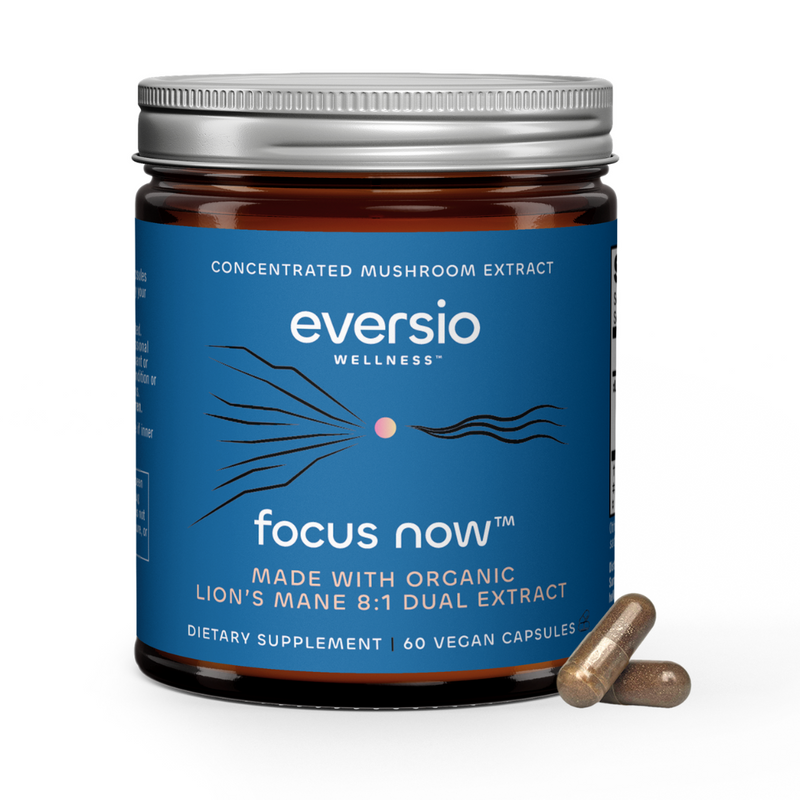
Our Lion's Mane extract captures the unique antioxidant and neurotrophic compounds that make this mushroom a powerful ally for cognitive health. Each capsule provides:
- 500mg of 8:1 concentrated extract (equivalent to 4,000mg of raw mushroom)
- Full spectrum of hericenones and erinacines
- Potent antioxidants that support brain health
- USDA Organic certified whole fruiting bodies
Lion's Mane's unique combination of antioxidant and neurotrophic properties makes it particularly valuable for protecting brain cells from oxidative stress while supporting cognitive function.
Shop Focus Now Lion's Mane Extract
Chill Now - Organic Reishi 15:1 Dual Extract Capsules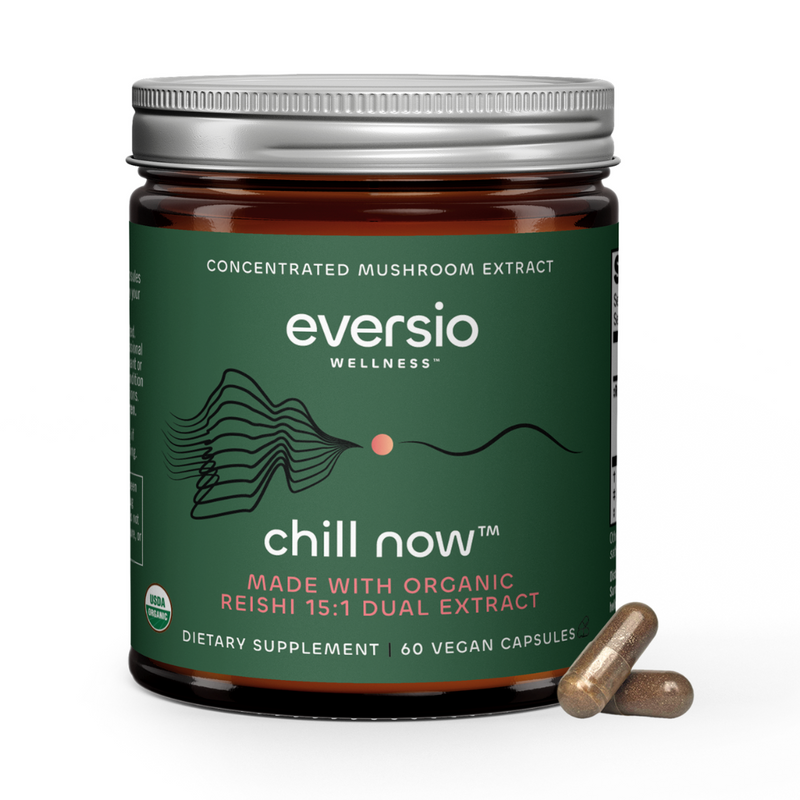
Our Reishi extract harnesses the powerful adaptogenic and antioxidant properties of this revered mushroom:
- 500mg of 15:1 concentrated extract (equivalent to 7,500mg of raw mushroom)
- Rich in triterpenes, ganoderic acids, and polysaccharides
- Supports stress response and sleep quality
- USDA Organic certified whole fruiting bodies
Reishi's extensive array of antioxidant compounds works synergistically to support cellular health and help the body maintain balance during times of stress.
Protect Now - Organic Chaga 8:1 Dual Extract Capsules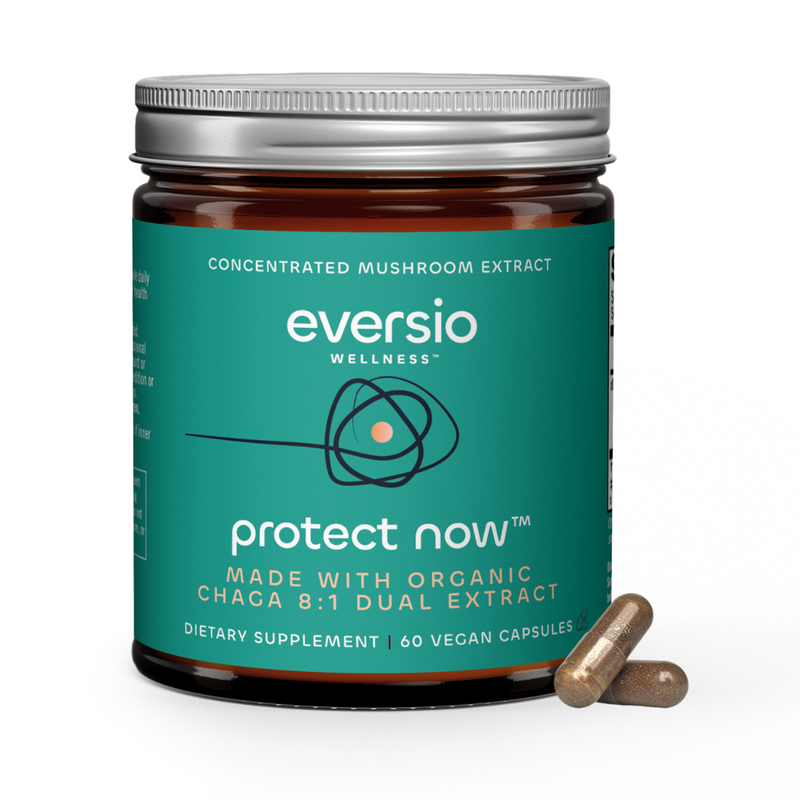
Our Chaga extract captures the exceptional antioxidant power of this northern treasure:
- 500mg of 8:1 concentrated extract (equivalent to 4,000mg of raw mushroom)
- High in melanin, betulinic acid, and polyphenols
- One of nature's highest ORAC values
- USDA Organic certified wild-harvested chaga
Chaga's remarkable antioxidant profile makes it particularly valuable for supporting overall cellular health and immune function.
Shop Protect Now Chaga Extract
Energize Now - Organic Cordyceps 8:1 Extract Capsules
While known primarily for its energy-supporting benefits, Cordyceps also offers significant antioxidant properties:
- 500mg of 8:1 concentrated extract (equivalent to 4,000mg of raw mushroom)
- Rich in cordycepin and adenosine
- Supports cellular energy production and oxygen utilization
- USDA Organic certified whole fruiting bodies
Cordyceps' unique ability to support energy production while providing antioxidant protection makes it particularly valuable for active individuals.
Shop Energize Now Cordyceps Extract
What Sets Our Extracts Apart
Dual Extraction Method
We use both hot water and alcohol extraction to ensure the full spectrum of both water-soluble (polysaccharides, beta-glucans) and fat-soluble (triterpenes, sterols) compounds are preserved. This comprehensive approach maximizes the antioxidant potential of our products.
USDA Organic Certification
All our mushrooms are USDA Organic certified, ensuring they're grown without synthetic pesticides, fertilizers, or GMOs. This not only protects your health but also ensures the highest antioxidant content, as research shows organic growing methods often result in higher levels of protective compounds.
Whole Fruiting Body
We use only the fruiting body of the mushroom—the part that contains the highest concentration of beneficial compounds—rather than mycelium grown on grain, which can dilute potency. This ensures you get the most concentrated source of mushroom antioxidants.
Dì Dào Sourcing Philosophy
Our mushrooms are grown Dì Dào—in their spiritual and native homeland with the preferred environment, atmospheric energy, pressure, and altitude required to thrive. When mushrooms are grown in their natural habitat, they develop their full profile of protective compounds, delivering optimal potency.
Third-Party Testing
All our products undergo rigorous third-party testing for purity, potency, and safety, ensuring you receive exactly what's on the label—nothing more, nothing less.
Frequently Asked Questions about Antioxidant Mushrooms
Are mushroom antioxidants bioavailable?
When you're consuming mushrooms for their antioxidant benefits, it's natural to wonder if your body can actually absorb and use these compounds. The good news is that many mushroom antioxidants show excellent bioavailability.
Ergothioneine, one of the star antioxidants found in mushrooms, has its own dedicated transport system in your body. It's absorbed through a specific transporter (OCTN1) in your intestines and then cleverly distributed to tissues experiencing high oxidative stress, like your liver, kidneys, and brain. This targeted delivery makes ergothioneine particularly effective where your body needs it most.
For the beneficial polysaccharides in mushrooms, bioavailability varies. The chitin in mushroom cell walls can sometimes limit absorption of certain compounds. That's why dual-extracted supplements, like those we create at Eversio Wellness, often provide better bioavailability than simply eating raw mushrooms. The extraction process breaks down these tough cell walls, making the beneficial compounds more accessible to your body.
Interestingly, for culinary mushrooms, light cooking can actually improve the bioavailability of certain antioxidant compounds. The heat helps break down cell walls and releases bound antioxidants, making them more available for your body to absorb and use.
Can I take mushroom extracts with prescription medications?
While mushroom extracts are generally safe for most people, they can potentially interact with certain medications. It's always best to have a conversation with your healthcare provider before adding mushroom supplements to your routine, especially if you're taking:
Blood thinners or anticoagulants: Some mushrooms have mild natural anticoagulant properties that could potentially improve the effects of these medications.
Immunosuppressants: If you're taking medications that suppress your immune system, be aware that many mushrooms have immune-modulating properties that could potentially counteract these drugs.
Diabetes medications: Certain mushrooms may affect blood sugar levels, which could require adjustments to your medication dosage.
Blood pressure medications: Some mushrooms may have effects on blood pressure, potentially creating additive effects with your medication.
Always be transparent with your healthcare provider about all supplements you're taking, including mushroom extracts. This helps ensure your overall treatment plan remains safe and effective.
Who should avoid high-dose mushroom supplements?
While mushrooms offer impressive health benefits, high-dose supplements aren't right for everyone. Several groups should exercise caution:
Pregnant or breastfeeding women should generally avoid high-dose mushroom supplements due to limited research on safety during these important life stages. While culinary mushrooms in food amounts are typically fine, concentrated extracts haven't been sufficiently studied.
People with autoimmune conditions should consult their healthcare provider before using mushroom supplements. The immune-modulating effects of certain mushrooms could potentially affect the course of autoimmune diseases.
Individuals with mushroom allergies, while rare, should obviously avoid mushroom supplements. If you've experienced allergic reactions to edible mushrooms, extracts could trigger similar responses.
Those scheduled for surgery should discontinue mushroom supplements at least two weeks before their procedure, as some mushrooms may affect blood clotting.
People with severe liver or kidney disease should be cautious with supplements in general, as these organs are responsible for processing and eliminating compounds from the body.
For most healthy adults, starting with lower doses of mushroom supplements and gradually increasing while monitoring for any adverse reactions is a sensible approach. This allows you to assess your individual tolerance while enjoying the potential benefits of these remarkable fungi.
Harness the Power of Mushrooms—The Future is Fungi, and It Starts with You!
As we've explored throughout this article, mushrooms offer an impressive array of antioxidant compounds that can help protect our cells from the daily assault of oxidative stress. From common culinary varieties to medicinal powerhouses, these remarkable fungi provide unique protective benefits that complement the antioxidants found in fruits and vegetables.
What makes mushroom antioxidants truly special is their diversity and complementary actions. While berries and leafy greens provide important vitamins and polyphenols, mushrooms contribute rare compounds like ergothioneine and beta-glucans that work through different mechanisms to create a more comprehensive shield against free radical damage.
At Eversio Wellness, we're passionate about making these powerful natural compounds accessible to everyone. Our premium mushroom extracts capture the full spectrum of beneficial compounds found in mushroom fruiting bodies, delivering them in a convenient, bioavailable form that fits seamlessly into your daily routine.
Whether you're looking to support cognitive function with Lion's Mane, improve your resilience with Reishi, strengthen your defenses with Chaga, or boost your vitality with Cordyceps, our USDA Organic certified, dual-extracted products provide mushroom antioxidants in their most potent form.
The science behind mushroom antioxidants continues to evolve, with new research regularly revealing additional benefits. By incorporating diverse mushroom species into your wellness routine—whether through culinary exploration or targeted supplementation—you're embracing both ancient wisdom and cutting-edge nutritional science.
What's particularly exciting about the antioxidant potential of mushrooms is how they seem to provide targeted protection to areas of high oxidative stress in the body. For example, ergothioneine accumulates in tissues that experience liftd free radical production, such as the liver, kidneys, eyes, and brain. This selective concentration suggests that mushroom antioxidants may offer specific benefits to our most vulnerable tissues.
As our understanding of oxidative stress and its role in aging and disease continues to deepen, mushrooms are likely to become increasingly central to conversations about longevity and wellness. Their unique antioxidant profiles, combined with their adaptogenic properties and immune-supporting benefits, position fungi as key allies in our quest for optimal health.
Accept the protective power of mushroom antioxidants and find why these remarkable organisms are becoming essential components of holistic wellness approaches. The future is fungi, and it starts with you making mushrooms part of your daily health routine.

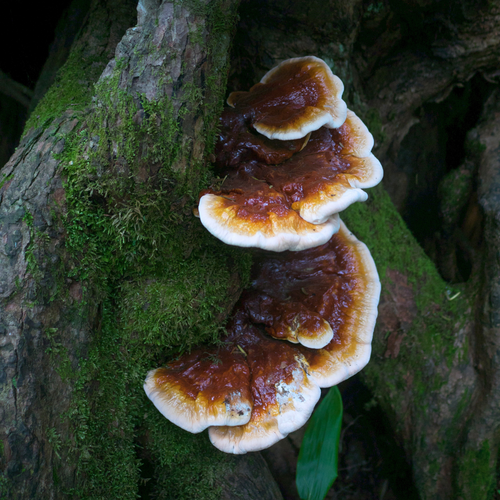

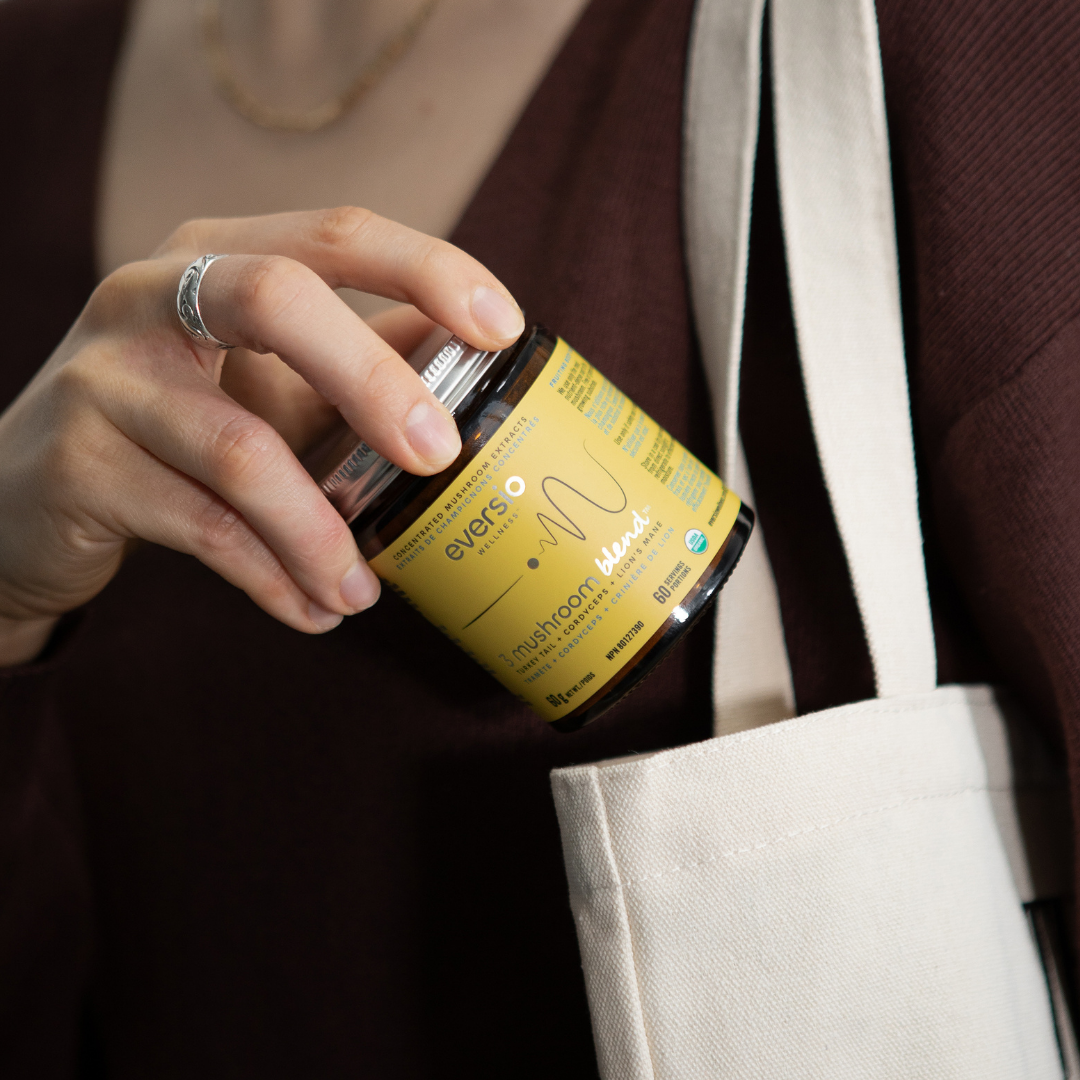

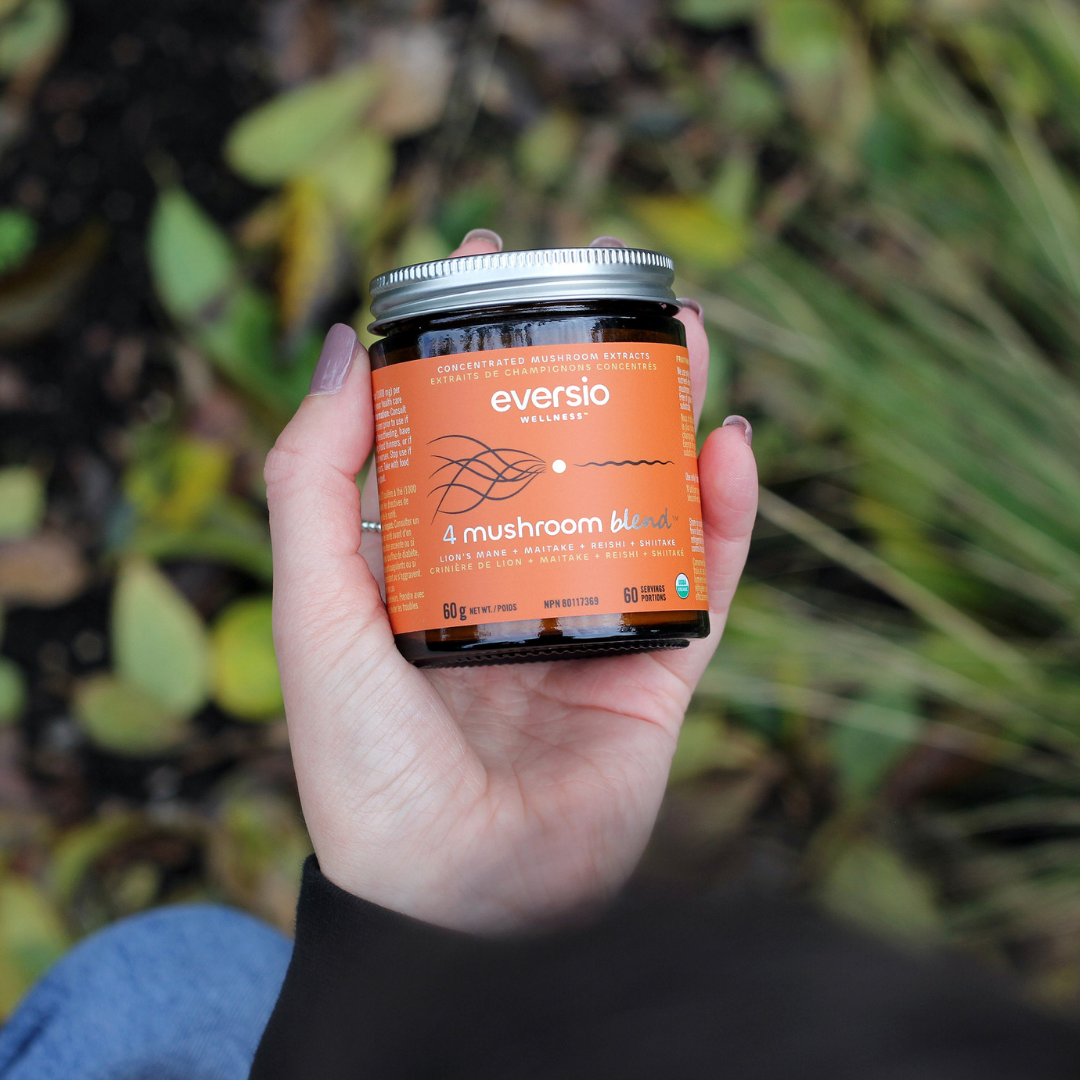



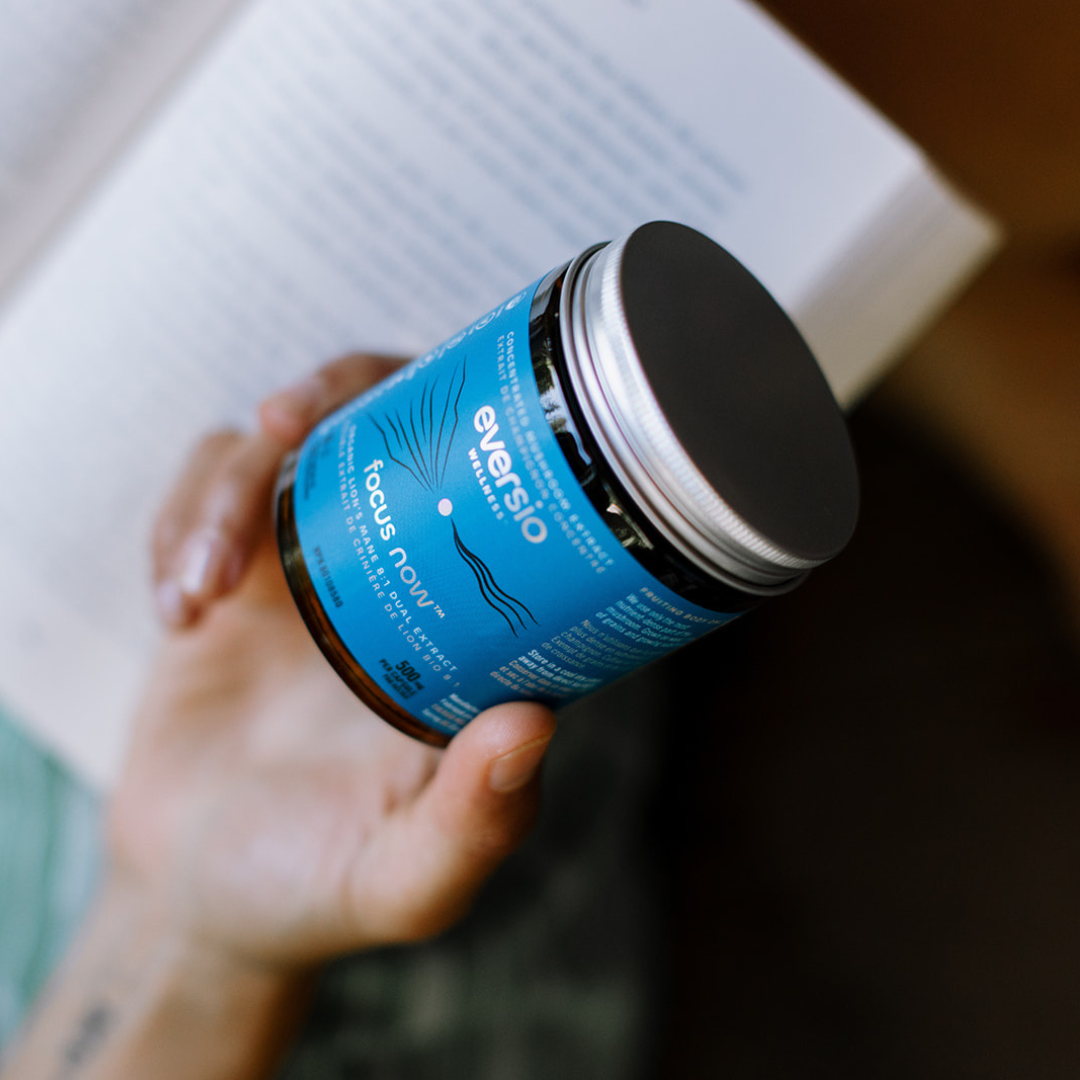

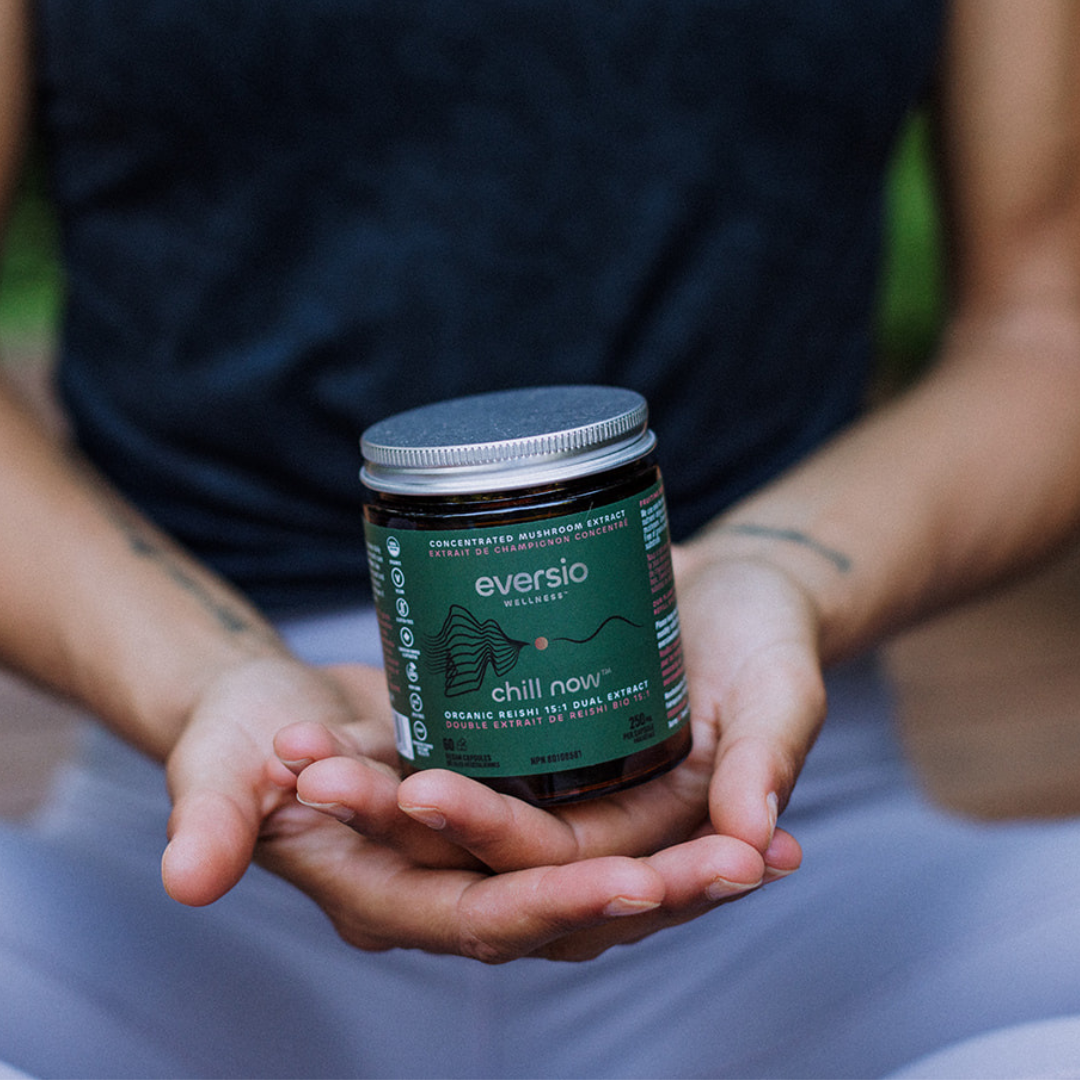
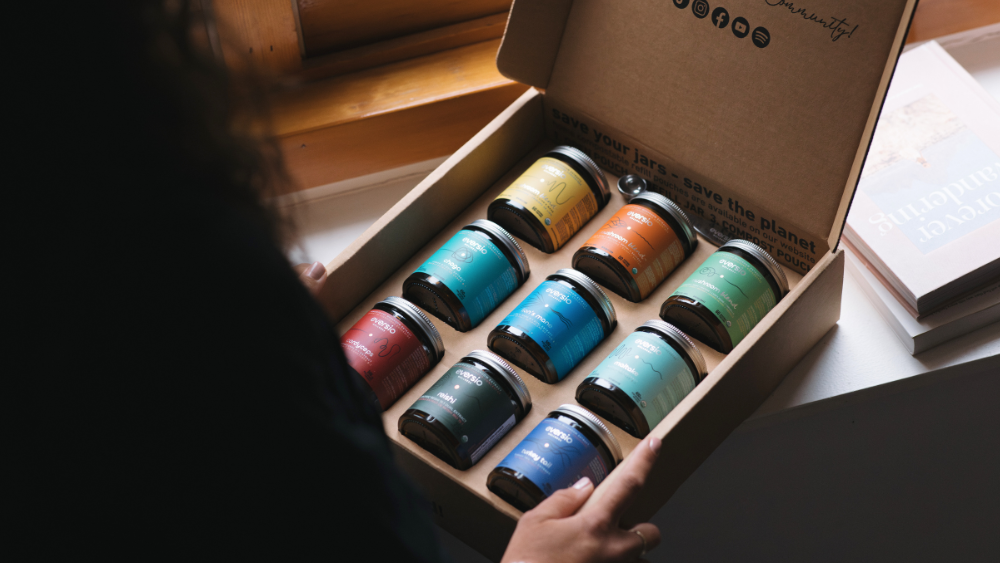







Leave a comment
This site is protected by hCaptcha and the hCaptcha Privacy Policy and Terms of Service apply.